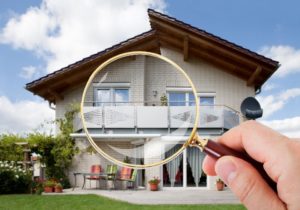VAEEC Makes the Case for Building Codes as Carbon Pollution Reduction Tool
 On January 10, 2017, VAEEC and LEAP made the case for Virginia adopting the model energy codes for new buildings before the EO-57 Working Group. This is a group convened by Secretary of Natural Resources Molly Ward per Governor McAuliffe’s Executive Order 57 in the summer of 2016; the group is charged with recommending concrete steps to reduce carbon pollution from Virginia’s power plants using existing authority; a public comment period is open through April 30.
On January 10, 2017, VAEEC and LEAP made the case for Virginia adopting the model energy codes for new buildings before the EO-57 Working Group. This is a group convened by Secretary of Natural Resources Molly Ward per Governor McAuliffe’s Executive Order 57 in the summer of 2016; the group is charged with recommending concrete steps to reduce carbon pollution from Virginia’s power plants using existing authority; a public comment period is open through April 30.
You can download our full presentation here. Learn more about EO-57 and submit your comments here.
Our case was greatly strengthened by the fact that two of the day’s six other presenters also recommended building codes as among the most cost-effective strategies for minimizing greenhouse gas emissions. They mentioned codes as preferred options, and we got into the details of how Virginia’s code update process works, where Virginia deviates from the model codes and what that costs new homebuyers, and how the Working Group’s representatives might intervene. We included data suggesting that even improved compliance with the current code would obtain real benefits for emissions reductions and for new homebuyers.
Our specific recommendations were as follows:
- Provide guidance to DEQ and DMME staff regarding how to participate in code update process (e.g., submit comments, support amendments).
Create an ex-officio seat for DMME staff on the Board of Housing and Community Development. - Direct DHCD and DMME to enter into an MOU for information sharing.
- Ensure that it is the policy of DHCD to provide expert guidance regarding building science to inform the code update process.
- Fund/support a study of compliance with current codes.
The triennial update to Virginia’s building codes is an administrative process managed by the Department of Housing and Community Development and involving many stakeholders. Energy conservation is still considered a relatively minor issue by many of the current participants in this process. The VAEEC is committed to educating all participants about the many benefits of adopting and enforcing rigorous energy codes.
As we pointed out, strong codes are a win for:
- Environmental policy (global warming, resource use)
- Energy policy (costs, grid stability, predictability)
- The construction industry (deliver a more valuable, higher-quality product
- The mortgage industry (32% less risk of default (IMT/UNC report)
- Local jobs (framing and insulating don’t happen overseas)
- Affordable housing (lowers total cost of housing and increases predictability of monthly costs)
- Home buyers/renters of all kinds (comfort, savings, predictability, air quality)
Not to mention people want it. A 2013 survey by the National Association of Homebuilders reports that 9 out of 10 homebuyers are willing to pay 2-3% more for a home that includes permanent energy efficiency features.
You can dig deeper into building codes in our October 2016 blog post “The impact and next steps of Virginia’s Board of Housing and Community Development on building codes” or by watching our December 2016 webinar “Building Codes as Energy Efficiency Driver in Virginia.”
VAEEC staff and members will continue to advocate for advanced energy codes in Virginia through the coming year.
Chelsea Harnish is VAEEC Executive Director.
Andrew Grigsby is Executive Director of the Local Energy Alliance Program (LEAP) and a member of the VAEEC Governance Board.
